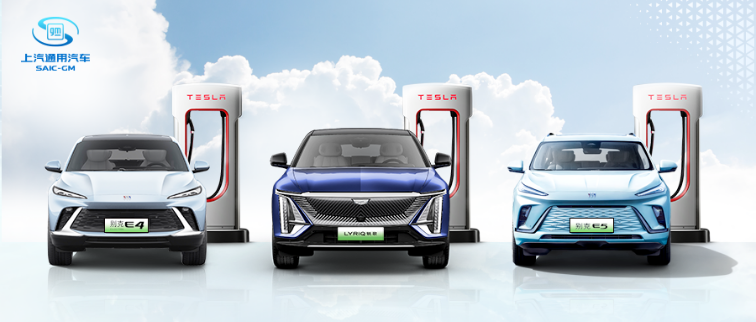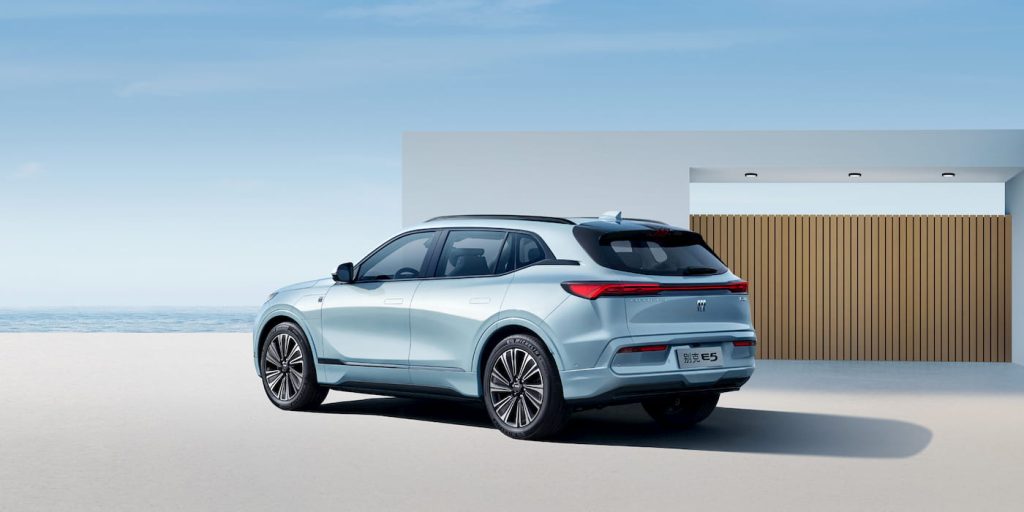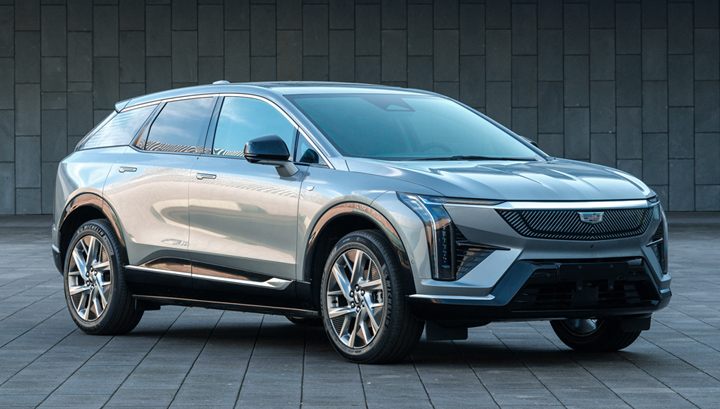
SAIC-GM, the company’s joint venture in China, announced a partnership with Tesla to gain access to its EV charging network. GM’s joint venture becomes the first domestic company to collaborate with Tesla in the region.
Starting at the end of this year, Cadillac and Buick EV owners in China will gain access to Tesla’s charging network.
Owners can open the brand’s app to find and use stations open to non-Tesla vehicles. Tesla has opened over 200 charging stations so far in mainland China for other EVs.
As Tesla’s network grows, more GM-SAIC electric models will be able to use the charging stations.
SAIC-GM is the first automaker in China to partner with Tesla to unlock its EV charging network. The company says it broadens its “circle of friends” and improves accessibility to convenient charging for its drivers.
The company has built 52 self-branded chargers so far, with nearly 250 charging stations in operation.

GM expands EV charging network with Tesla in China
In addition to Tesla, GM’s joint venture has partnerships with six other EV charging operators in China. Altogether, its network reaches roughly 500,000 charging stations across 320 cities in China.
According to SAIC-GM, its coverage in “prefecture-level cities” is over 96%, in addition to the more than 3,000 stations on highways.

GM sells four EVs under the Cadillac and Buick brands in China. Buick has three, including the E4, E5, and Velite 6. Cadillac’s Lyriq is also sold in China. Meanwhile, the luxury brand’s second EV, the Cadillac Optiq, will begin production by the end of the year.

The Optiq is poised to compete with Tesla’s Model Y in the region as a sporty midsize electric crossover.
Although SAIC-GM is the first automaker in China to unlock Tesla’s EV charging network, nearly all automakers in the US have adopted its tech.
Ford was the first, followed by GM, Rivian, Volvo, Hyundai, Kia, Nissan, Mercedes-Benz, Toyota, and several others.
Electrek’s Take
Like in the US, EV drivers in China want the most convenient, reliable charging experience. And so far, Tesla has proven its network’s reliability with 99.95% uptime.
According to Wedbush analyst Dan Ives, Tesla’s Supercharger network could generate $10 to $20 billion in revenue by 2030, or 3% to 6% of Tesla’s total revenue.
EV charging is becoming a big business. Although upwards of 80%-90% of charging is done at home, DC fast charging plays a critical role in EV adoption. Tesla was a first mover and now benefits in the US and globally.
Author: Peter Johnson
Source: Electrek



